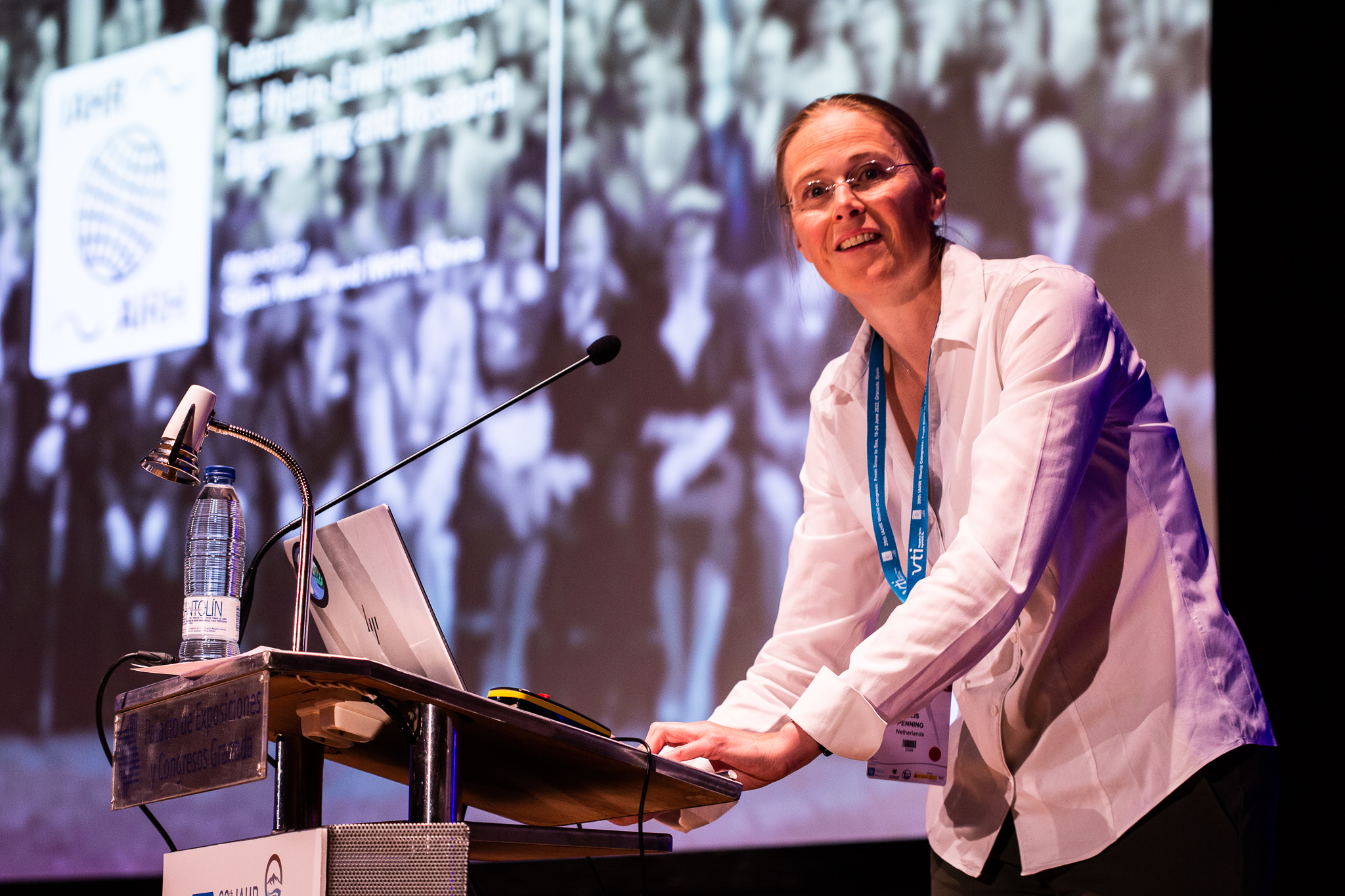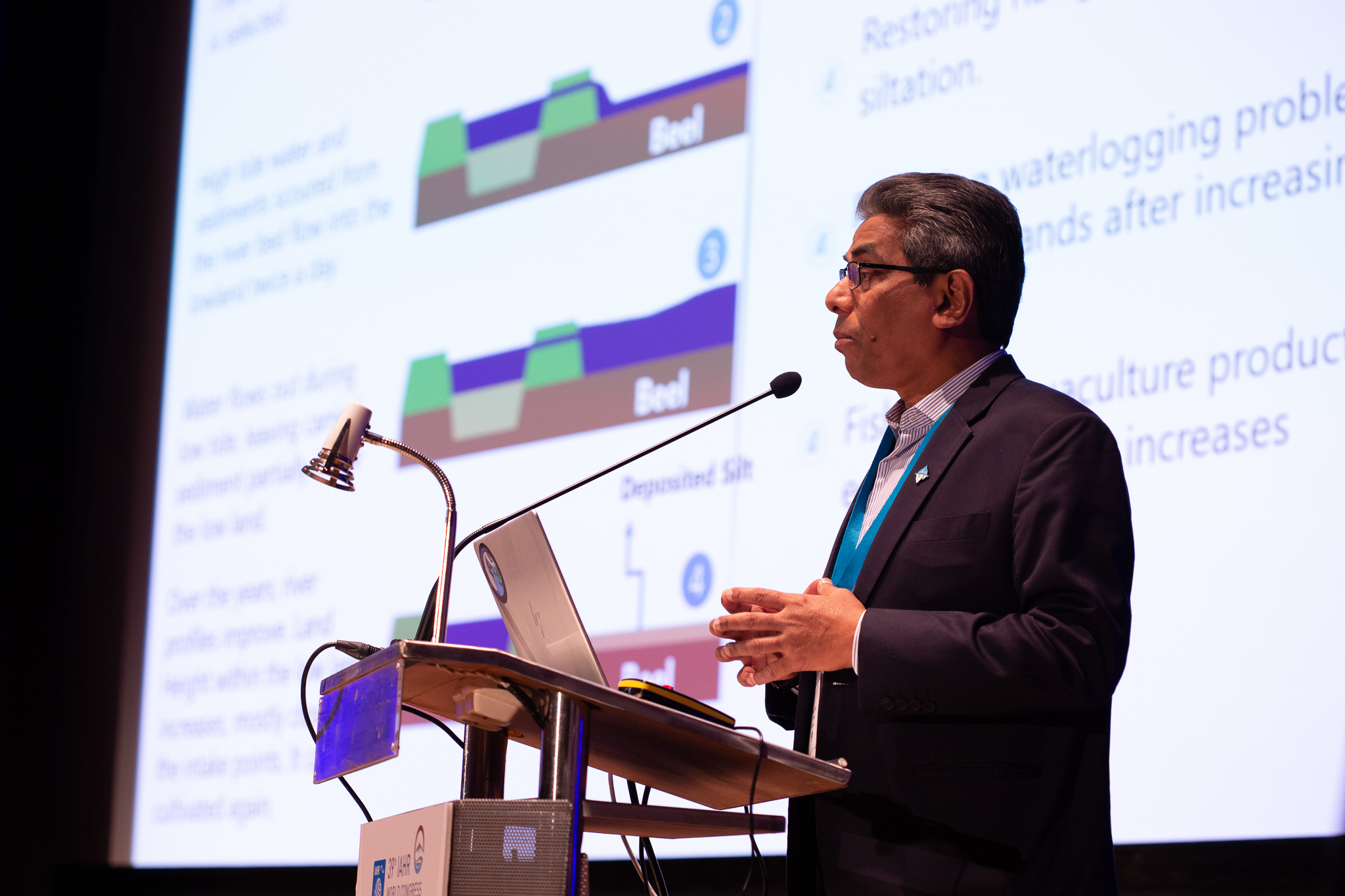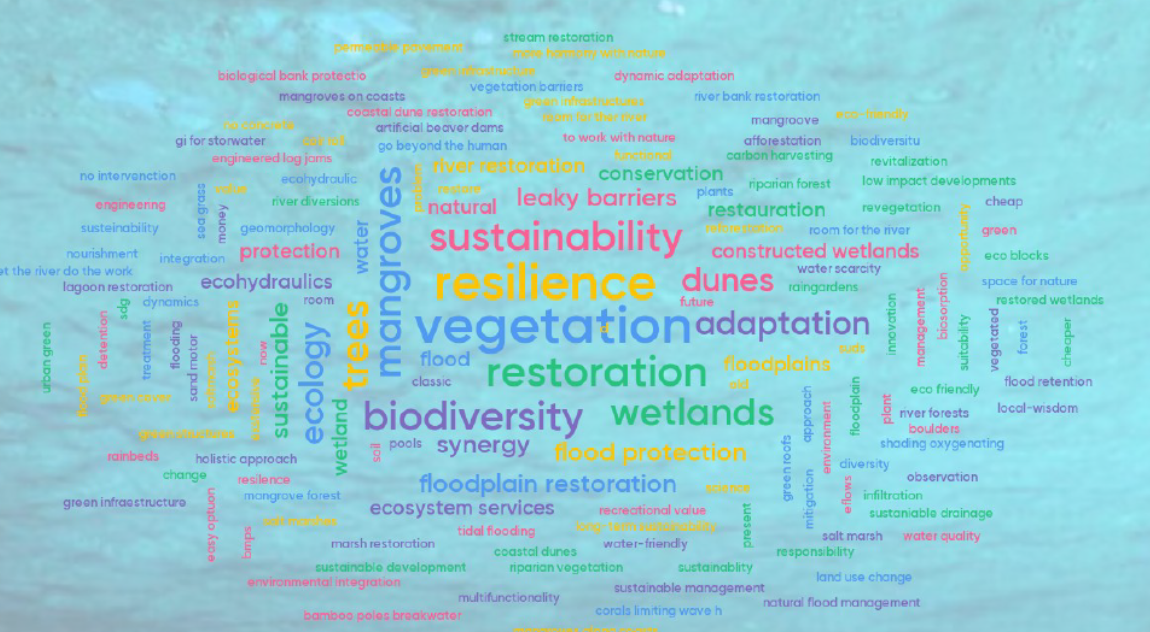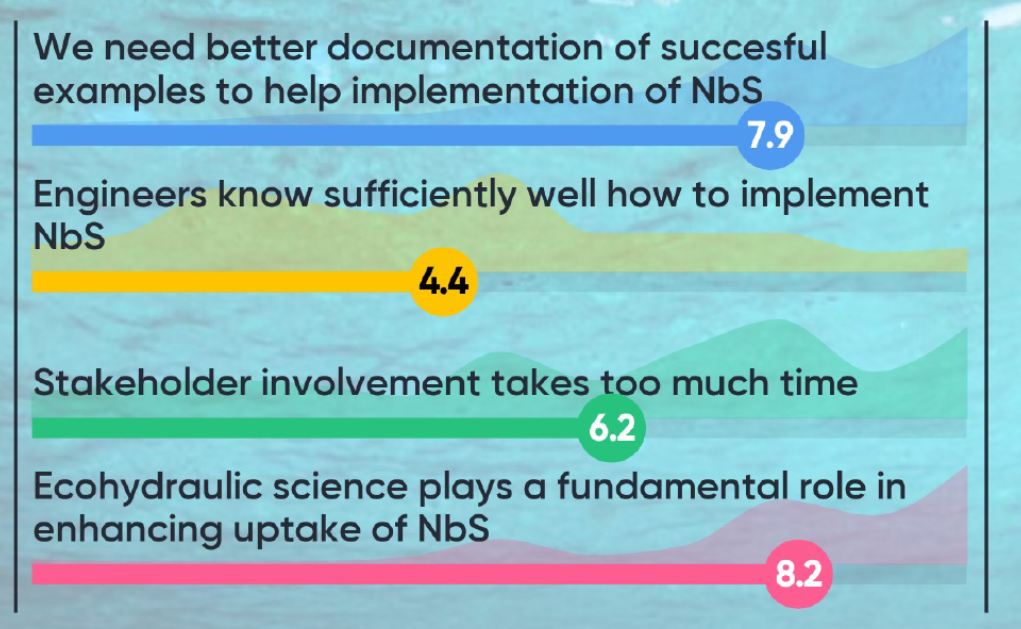High Level Panel: "Nature-based Solutions and Ecohydraulics"
Date and time: Friday 24 June. 10:00 - 11:30 h.
Background
Climate change affects communities around the globe and often through water related challenges such as increased flood and drought risks. The related impact on drinking water availability and food production, risk of waterborne diseases, and damage to properties and coastal zones are high and increasing. At the same time, we see an increased call for Nature-based Solutions (NbS) to help solve these challenges. Many demonstration projects have been implemented but upscaling remains difficult. Yet, there is a clear notice, also resulting from the recent COP26, that we need to speed up this implementation. Science can play an important role in providing knowledge to upscale the implementation of NbS, such as results from eco-hydraulic research and innovative monitoring of natural dynamics in water systems.
Purpose and scope of Panel

The purpose of the High-level Panel was to bring high level actors from governments, NGOs, industry, science, and finance together to share experiences and visions for upscaling the implementation of NbS and discuss their role and contribution in this process. During this High Level Panel, the following questions were discussed:
‘What is needed for upscaling NbS implementation?‘
‘What is the role of governments, financial institutions, science, NGOs, and the public sector in facilitating the uptake of NbS?’
‘How does the local context affect the easiness of upscaling implementation?’
‘What can we learn from successful cases?’
‘How can the IAHR-community contribute to upscaling efforts?’
The discussions
The session was opened by a brief overall stage-setting by Moderator, Dr. Ellis Penning, Chair of the IAHR working group on Nature-based Solutions, explaining the increasing call for Nature-based Solutions worldwide. Despite many pilots and examples, mainstreaming and upscaling the implementation of NbS remains challenging.
This was followed by a series of short pitches of the panel members, in which they addressed their role in NbS implementation and presented inspiring examples of their favourite Nature-based Solutions.
Mr. Malik Fida A. Khan, Executive Director of the Center for Environmental and Geographic Information Services (CEGIS) and member of the National River Conservation Commission (NRCC) in Bangladesh, explained the wide variety of NbS already being implemented within Bangladesh and how these benefit the local communities, ranging from floating agriculture to tidal river management and coastal protection by mangrove forests.
 Dr. Eva Hernández Herrero, Leader of the Living European Rivers Initiative at WWF Spain explained the importance of stakeholder involvement in the successful implementation of NbS and the role NGOs play in bringing additional arguments for natural river management to the table.
Dr. Eva Hernández Herrero, Leader of the Living European Rivers Initiative at WWF Spain explained the importance of stakeholder involvement in the successful implementation of NbS and the role NGOs play in bringing additional arguments for natural river management to the table.
Prof. Hyoseop Woo, Past Director of Korean Institute of Civil Engineering and Building Technology (KICT) and Professor at Sejong University, South Korea, addressed the importance of reviving ancient management practices as these often have a Nature-based character underlying them. For instance, the role of floodplain forests to protect adjacent lands from riverine flooding is a common traditional practice in South Korea. A second example was the daylighting of an urban stream in Seoul, which provides many benefits to the local residents ranging from flood risk and heat island reduction to beautification and appreciation of the general area.
Dr. Marjolein van Wijngaarden, Director Strategy - Boskalis NL and Chair of the Advisory Board Ecoshape, expressed the importance of cooperation with industry to effective realization of implementation. In this, the industry can play a pivotal role in upscaling by making projects at scale possible. The joint collaboration efforts were undertaken in the Dutch Ecoshape consortium, which brought industry, research institutes, and consultants together to develop relevant knowledge through pilots resulting in iconic NbS projects such as the Sand Engine in the Netherlands. These pilots have helped to increase the general acceptance of NbS as a more standard approach in the Netherlands.
Dr. Eileen Burke, World Bank’s Global Lead for Water Resource Management, explained the twofold role of the World Bank in the implementation of NbS, one for providing relevant practical guidance and one for being the primary lender and funder in many large scale projects where NbS may be part of the overall strategy towards water management challenges. Especially for water retention measures, there is a clear need to better use natural water retention measures to provide the much needed storage capacity.
After these pitches, there was a round of interaction with the audience through the use of menti.com, moderated by Dr. Jochen Hack, Member of the Leadership Team of the IAHR working group on Nature-based Solutions, to gain insight into the view of the audience on NbS. Many people (n=140) knew of NbS in their country and common words related to NbS included resilience, adaptation, biodiversity, vegetation, sustainability and restoration:

Four statements to which the audience responded were discussed with the panel members:

The audience indicated the clear need for better documentation of successful examples to help implementation of NbS. The panel responded that there are many sources of information, but these may not be known to the wider community. The working group on NbS will provide an overview of these sources on the IAHR working group sub-website. This also related to the acknowledgment of the audience that engineers still are looking for more knowledge to help implementation of NbS. There was a general perception that involving stakeholders is time-consuming. The panel indicated that the involvement of stakeholders is crucial for the successful implementation of NbS. Specialized NGOs and consultants can help in this process. The role of science to further system understanding was generally acknowledged.
Key messages to the IAHR community
The following key messages emerged as an outcome of the discussions:
Different actors such as science, industry, NGOs, governments, and financial institutes all have a role to play in the successful impelmentation of NbS
Also, the panel pointed to the role that each individual one of us has a role to play in the implementation of NbS by addressing the question if a Nature-based alternative solution can be placed next to a more traditional one for a given challenge.
Good system understanding lies at the heart of the implementation of solutions, both from the bio-physical aspects and the socio-economic and governance aspects.
The Panelists thanked IAHR and the Spanish Organizers for the opportunity provided by this Panel discussion and expressed hope that the community of people working on NbS at IAHR will be growing in the near future and become a platform to share knowledge and information as broadly as possible. New initiatives towards the IAHR 2023 WC in Vienna with the theme “Rivers – connecting mountains and coasts” will be further explored.